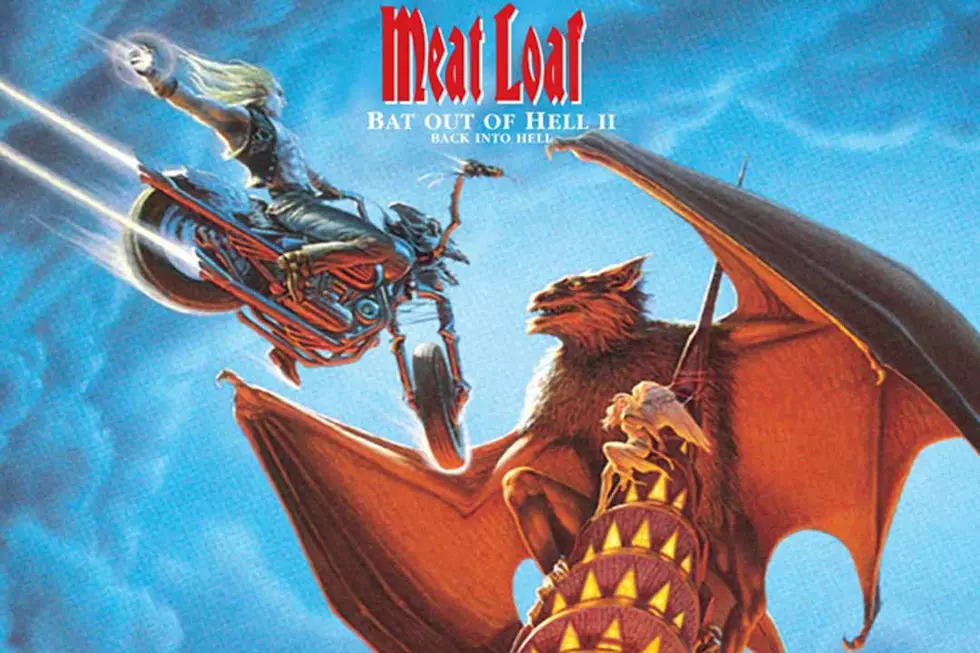
30 Years Ago: Meat Loaf Goes ‘Back Into Hell’ and Scores a Hit
"There are no second acts in American lives," F. Scott Fitzgerald wrote in his unfinished, posthumously published novel The Last Tycoon. But Meat Loaf proved him wrong with the surprising success of Bat Out of Hell II: Back Into Hell.
Released on Sept. 14, 1993, the album reunited Meat Loaf with songwriter Jim Steinman, who composed the 1977 original and its 1981 follow-up, Dead Ringer. But they had a falling out shortly thereafter over money and Steinman spent the better part of the '80s creating similarly grandiose hits for the likes of Air Supply ("Making Love Out of Nothing at All") and Bonnie Tyler ("Total Eclipse of the Heart").
Meat Loaf recorded three albums on three different labels between 1983 and 1986, the most successful of which, 1984's Bad Attitude, only reached No. 74 on the Billboard 200. The duo finally reconciled in 1990 and began working on the new project, even bringing back some of the musicians who appeared on the original, including Roy Bittan, Ellen Foley and Todd Rundgren.
READ MORE: Meat Loaf's 13 Most Underappreciated Songs
Four of Bat Out of Hell II's songs were originally released on Bad for Good, which started as the sequel to Bat Out of Hell but wound up as a Steinman solo album when Meat Loaf lost his voice due to a combination of drugs and exhaustion. Two other songs came from Pandora's Box, a girl group Steinman had formed in 1989.
Listen to Meat Loaf's 'I'd Do Anything for Love (But I Won't Do That)'
How Meat Loaf Finally Scored a No. 1 Single
One of the five new Steinman songs led to the sequel's five-times platinum chart-topping success. The 12-minute opening track "I'd Do Anything for Love (But I Won't Do That)," edited down to a radio-friendly 5:09, became a global smash hit. The single topped the Billboard Hot 100 – the first time for Meat Loaf – and stayed there for a month. Two other songs, "Rock and Roll Dreams Come Through" and "Objects in the Rear View Mirror May Appear Closer Than They Are," reached the Top 40.
Overall, Bat Out of Hell II sold five million copies, considerably less than the first album but still remarkable given how far Meat Loaf's star had fallen since his mid-'70s peak. It was No. 1 for two weeks. "Nobody writes like Jim Steinman," Meat Loaf said on The Tonight Show. "All these things – bombastic, over-the-top, self-indulgent. All these things are positives."
22 Best Rock Album Sequels
Why Don't More People Like This Meat Loaf Album?
More From Ultimate Classic Rock









